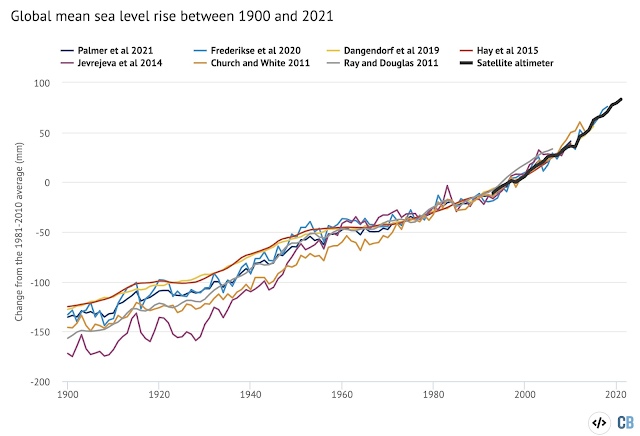Stossel Attempts Climate Journalism, Part 2
.png)
Stossel's second video about climate myths has been published, continuing the shoddy journalism from Stossel and fake research from Lueken. Like my last post , I'll first show the flaws in their rhetorical strategy and then look at the individual myths. I'll then provide a bibliography of the research on each of these subjects so you can check up on me and see for yourself that the actual research does not support Stossel's claims. Rhetorical Strategy The same tactics of taking soundbites out of context continues here. In fact, Stossel reuses the "We don't have decades; we hardly have years" clip in this video. He also shows a soundbite from news story reporting that extreme drought conditions exist in the northeastern US, but he doesn't show that the story attributes that to climate change (as his "myth" 5 claims). And he's still enlisting the help of Linnea Lueken to give scientific credibility to his shoddy journalism. But he adds an ...

.png)
